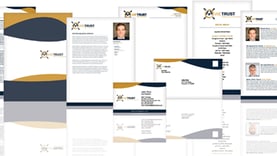Many financial professionals are under the impression that in order to grow their business and be more successful they need to see more prospects. In fact, many have spent tens of thousands of dollars on various prospecting systems to grow their business with little to nothing to show for it. Often, the prospecting system is tremendously successful and prospects set appointments. However, they close few or none of the opportunities because they lack consistent processes.

Prospecting is the Easy Part
If you want more prospects you mail more postcards. You host more workshops. You invest in an automated prospecting system. You buy more advertising. It’s that easy. But, what you do with those prospects will determine whether your investment was a success or failure. That is why financial professionals need a consistent process.
Implementing a Consistent Process
Now that you understand that your investment in time and money is at stake, focus on implementing a consistent process. Once a prospect has decided to hold an appointment with you, the prospecting method has done its job. Now the process takes over.
You should have a process for building trust with your prospects before they ever step foot through your door. Establishing communications and touch points that you and your firm complete before the client comes in is a great place to begin. Once the prospect is in your office, carefully plan their experience in your office. Leave nothing to chance. Have a well-planned welcome wagon for your new clients. They have made a choice to take control of their problems, and asked you to assist them with the solution. It would be appropriate to take measures to ensure that they feel good about their decisions and feel good about partnering with you.
Consistent Interactions with Prospects and Clients
Utilize an agenda in your meetings. It reduces the prospects' stress, worry, and anxiety, and it will keep you focused and on schedule. You should have a well-communicated planning process that your prospects can see and understand. They need to know what is going to happen every step of the way in order to be comfortable with it.
After identifying potential issues, outline action steps and have the prospect prioritize the actions that they have committed to. Save illustrations and company literature for the appropriate time. The product presentation should be at the end of the process. Don't forget to also have procedures in place to provide information after prospects and clients have left your office.
Be a Consistent Financial Professional
Think about what you are currently doing with your prospects. What is your current step-by-step process? How do you lead the right fit prospect to identify their problems, take ownership of their problems, make a decision to fix their problems, and then take action to resolve their problems? When you have a consistent process you will enjoy your business more. You’ll experience a greater sense of fulfillment, close more business, and earn more valuable introductions to additional prospects.
As a financial professional, you should explore and use multiple strategies to fill your lead funnel. To become a successful insurance producer, you must first develop a long-term marketing plan and most importantly, commit financial resources to see that plan through. Get the eBook shows you the five most effective and proven ways to fill your sales funnel.






